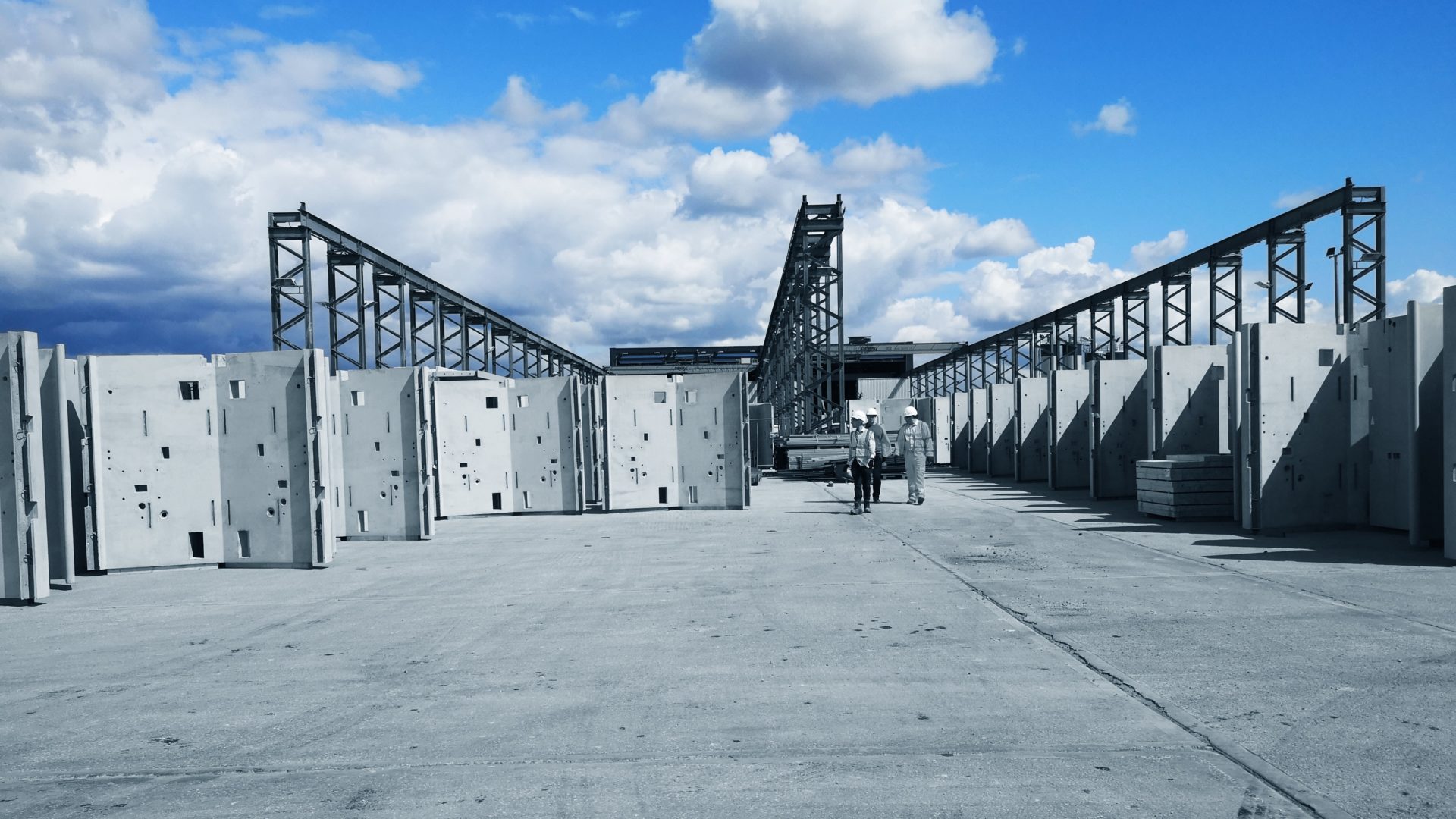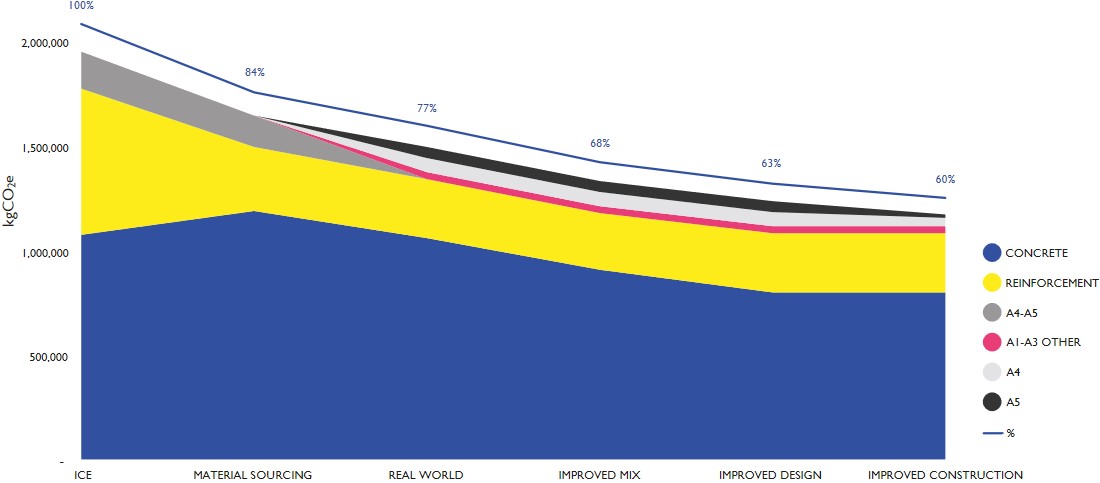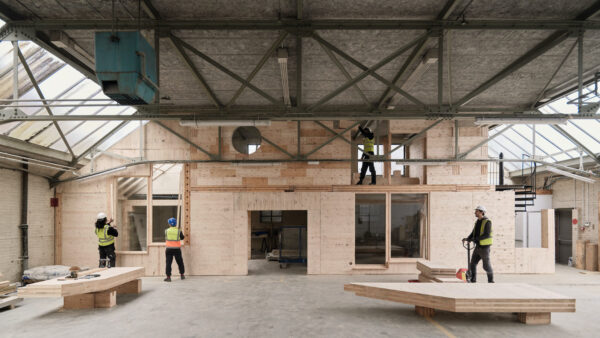
An Innovate UK-funded pilot aimed at decarbonising precast concrete has achieved a 40% reduction in emissions.
The project, involving design-for-manufacture firm Akerlof, materials company Forterra, superstructure and façade construction specialist PCE, engineer Curtins, and sustainability consultant Accelar, is supported by the Ministry of Justice’s future capital programmes.
The pilot has devised an optimised design and mix technical specification that delivers a net reduction of 40% in precast concrete’s embodied carbon emissions, when benchmarked against the Institution of Civil Engineers (ICE) database.
The precast concrete sector is expected to grow by 18% to £2.3bn by 2024 but its production is fuel and carbon intensive, which could pose problems for designers as whole-life emissions calculations become more intrinsic to the UK’s built environment.
The Decarbonising Precast Concrete team took a holistic approach to measure all partners’ activities and used benchmarking calculations to identify carbon quantums in the structure and then optimised different solutions for each stage, including design, manufacturing mix, and installation.
Interdependencies between each stage were interrogated to challenge preconceptions: for example, specifying concrete with higher strength (and more carbon) in some areas allowed less to be used; or using less reinforcement (such as steel and rebar) overall, leading to a greater reduction in embodied carbon in those areas.
The results were achieved through improved design using analysis of multiple factors of real-life use, improved mix design with increased concrete strength, and optimised design to new concrete strengths.

The improvements made at each stage of the journey to carbon reduction were cumulative, with a net saving of 40% from the baseline ICE database scenario of 779,156 kgCO2e per houseblock.
The DPC said the project outcomes are intended to be transferable to other sectors and development types, including student and rental housing and major health and education infrastructure. It added that the pilot’s process could also apply to a wider scope of products and services, including cladding, mechanical services, electrical services and insulation and drive embodied carbon reduction studies across different building materials.
Mike Nelson, Bison precast commercial director, said: “With the UK committed to net zero carbon by 2050, it’s important for businesses to look for opportunities to innovate and collaborate with others to develop practical sustainable solutions that can be industrialised. Our involvement in the pilot was a natural and important step for us as we look to decarbonise our entire business. It’s important to emphasise that the positive results achieved in this pilot scheme can be replicated across all construction sectors using precast concrete.”
Simon Harold, business development director, PCE, said, “For us, this project exemplifies the value in true collaboration within construction. Through taking a holistic approach to each stage of the construction process and considering the benefits and impacts of the decisions we make which affect the solution as a whole, significant gains in reducing embodied carbon can be realised without detriment to the specification and commercial viability of the solution.”
Gareth Jones, head of MMC & technical services at the Ministry of Justice, added: “This study demonstrates how collaboration through the supply chain can bring subject matter experts together to develop innovative solutions for decarbonising. We look forward to utilising and embedding such solutions in the Ministry of Justice’s New Prison Programme.”










